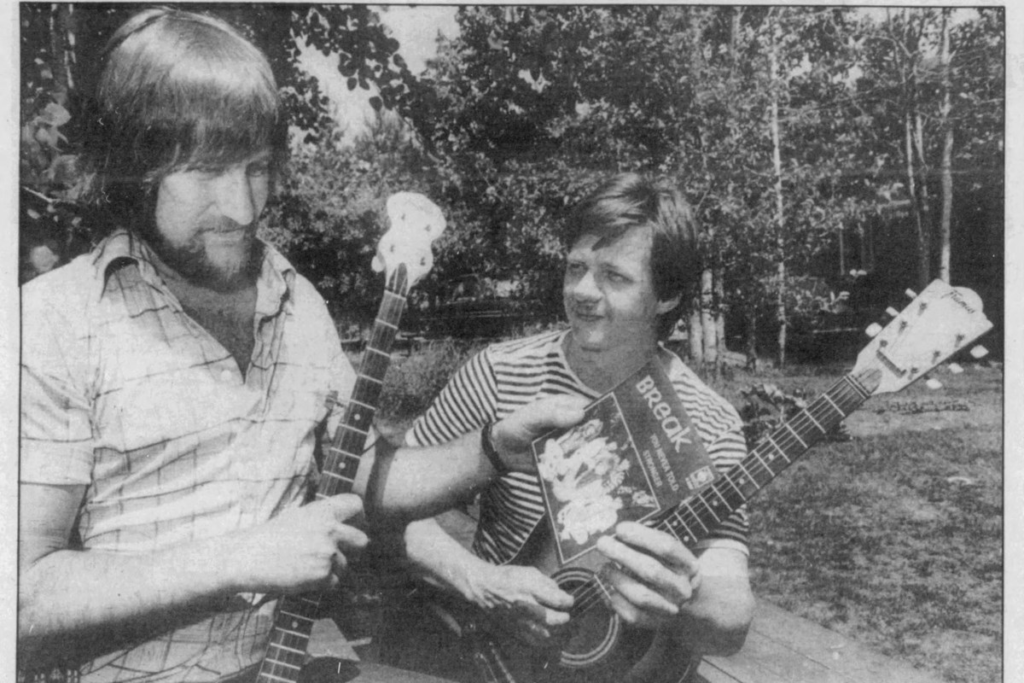Sign in
Join now, it's FREE!
From the archives of the Sault Ste. Marie Public Library:
Do you remember the band that inspired many musicians in the late seventies to early eighties? There are most likely several bands that come to mind, but the Beatles had a particular propensity to inspire, so much so that ‘Beatlemania’ ensued.
Musicians from the Sault were no different. One such example was Henry Riihimaki, who “was only about 12 when he decided he wanted to sing and learn to play the guitar” (Sault Star, July 10, 1982, p.39).
As Riihimaki developed his skills as a musician, he had opportunities to play in various bands, including a local group called ‘Crabaxle.’ Though the members of the band had a variety of musical tastes, they played mainly rock music at high school dances. However, the band did have opportunities to play at Cambrian College and played at local establishments as well. They were successful locally, but like many bands, Crabaxle had hopes of broader success.
Despite this desire, the broader success did not happen, at least to the degree they hoped, which is not uncommon. To make it in the industry, as the saying goes, you sometimes ‘have to be in the right place, at the right time.’
After being in countless bands, Riihimaki was disheartened by the scene in Canada, when something happened to provide an opportunity that made the saying stand true.
While out for dinner one evening, another diner started a conversation with him, which ultimately led to music. The man who initiated the conversation was like Riihimaki and the many others who try to make it in the music industry, only he was from Finland.
As you could imagine, this would pose a particular problem for Finnish-speaking bands. In the July 10, 1982, article in the Sault Star, Riihimaki states, “the Finnish rock bands all perform in English because that’s what goes over best and that’s what would have a better chance of being successful outside of Finland” (p. 39).
This is where Henry came into play.
The young man with whom he had that fateful conversation, regardless of being able to speak English, would have struggled to write lyrics in a language other than Finnish.
Riihimaki grew up here in the Sault but was born in Finland. Due to this fortunate circumstance, he was able to take advantage of “a demand for writers in the English language [in Finland]” (39) and garner success globally as a writer. This includes singles for an act that was named ‘Finland’s best rock group’ in 1981, called Break.
The translation of Finnish rock bands’ songs was paramount to their success, not only on a global scale but in Finland as well.
Even though the Finnish government offered artists financial incentives to aid them in pursuing music, getting airplay in Finland was difficult at the time. As Riihimaki pointed out, “the Finnish people are not exposed to rock music as Canadians are because there are only so many hours of rock music played each week” (p. 39).
Here we have radio stations dedicated to rock, whereas in Finland, there were only two stations in total, which played a variety of genres, including “its share of Finnish polka music,” he added. (p. 39).
For Riihimaki, it was a long journey to be in the right place at the right time, but he played his part by ensuring that songs from talented people did not get lost in translation. Due to his success in translation and composing songs for other talents, Henry was able to harness a career in country music and take advantage of the opportunity a conversation at a restaurant could offer.
Each week, the Sault Ste. Marie Public Library and its Archives provide SooToday readers with a glimpse of the city’s past.
Find out more of what the Public Library has to offer at www.ssmpl.ca and look for more "Remember This?" columns here.
If you would like to apply to become a Verified Commenter, please fill out this form.
© 2025 SooToday.com
